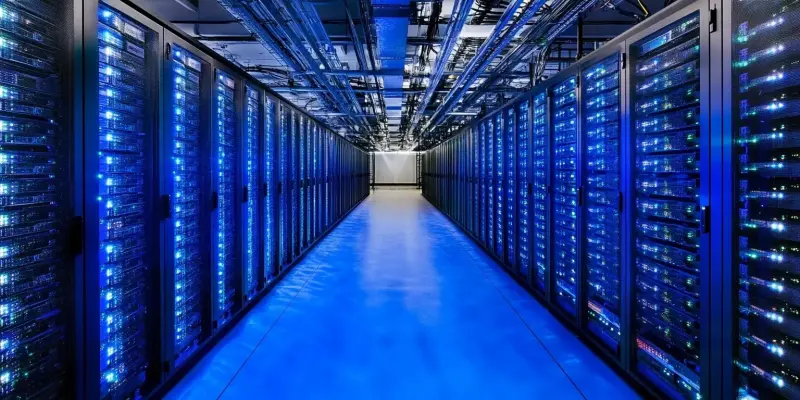Imagine a world without data centers. Essential services like email, instant messaging, video calls, social media, the cloud, and online shopping platforms would vanish. This scenario underscores the indispensable role data centers play in our digital economy. They are the backbone of the digital world, enabling everything from personal communications to global business operations.
The Critical Role of Data Centers in the Digital Landscape
Data centers have become irreplaceable pillars in the modern digital infrastructure, sustaining a wide array of services that we rely on every day. As technological advancements continue and the influence of artificial intelligence (AI) expands, the need for efficient data processing and vast storage capabilities surges. The continuous demand for more data capacity places data centers at the heart of evolving technology.
Despite their significant energy consumption, data centers have the potential to drive sustainability within the technology sector. By integrating green practices and adopting innovative energy solutions, data centers can drastically diminish their environmental footprint. Progressive data centers discerningly focus on renewable energy sources, efficient cooling technologies, and AI-driven optimizations to lead the way toward a sustainable professional landscape.
Marketing as a Bridge to Sustainability
Marketing plays a pivotal role in promoting the sustainability initiatives of data centers, translating the technical complexities into relatable messages for the general public. Effective marketing campaigns can amplify the conversation around sustainable practices, ensuring that these initiatives resonate with a wide range of stakeholders.
Global tech giants like Google and Microsoft exemplify how potent marketing strategies can spotlight sustainability efforts effectively. Google’s commitment to powering its data centers with 100% renewable energy since 2017 is well known, thanks to transparent and impactful marketing campaigns. This not only boosts brand credibility but also educates the public about sustainable data practices, making sustainability an integral part of its corporate identity.
Storytelling and Transparency in Marketing
Storytelling emerges as one of the most influential tools in marketing, particularly when conveying sustainability messages. Transparency further enhances the effectiveness of these stories. Sharing progress reports, significant milestones, and even challenges encountered on the path to sustainability fosters trust with stakeholders. This openness establishes data centers as accountable leaders in the journey toward a greener future.
Practical Marketing Strategies for Sustainability
To bridge the gap between complex technical jargon and audience understanding, practical marketing strategies are indispensable. Utilizing infographics, videos, and animations can demystify sophisticated notions such as energy-efficient cooling systems or AI optimizations.
Additionally, marketing can spotlight the palpable benefits of sustainable practices such as reduced operational costs, enhanced overall efficiency, and minimized environmental impact. By emphasizing these concrete advantages, data centers can position themselves as leaders in the digital economy’s sustainable transition.
The Ripple Effect of Sustainable Data Centers
Core services such as email, instant messaging, video calls, social media platforms, cloud storage, and online shopping would disappear. This hypothetical scenario starkly highlights the indispensable role that data centers hold in today’s digital economy. Data centers are the unsung heroes, forming the backbone of the digital infrastructure.These facilities ensure the proper functioning of everything from social interactions to efficient business transactions globally.

